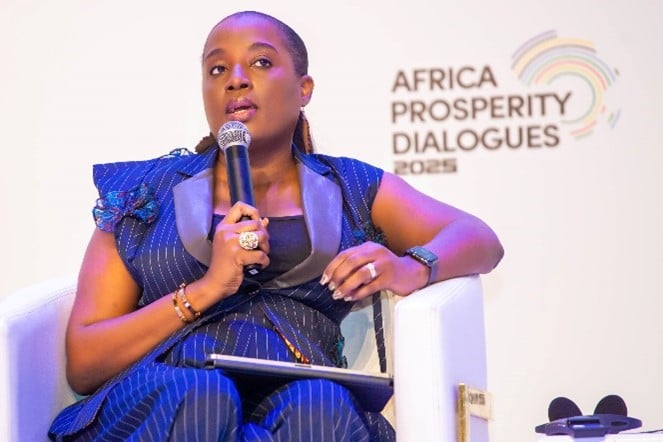The Imperative of Pan-African Collaboration for Infrastructure Development
Antoinette Kwofie, the Chief Finance Officer of MTN Ghana, delivered a compelling argument for unified continental regulations to attract investment for infrastructure development during the 2025 Africa Prosperity Dialogues (APD). She underscored the importance of collaborative, pan-African strategies to effectively address the continent’s infrastructure funding gap. A key takeaway from her contribution is the imperative of transitioning from fragmented national approaches to a unified continental perspective. She emphasized that Africa’s success hinges on its ability to function as a cohesive unit, leveraging the collective strength and resources of its constituent nations. Operationalizing the African Continental Free Trade Area (AfCFTA), harmonizing regulations, and dismantling trade barriers are crucial steps towards creating an environment conducive to intra-African investment and fostering economic growth.
Unlocking Africa’s Potential: Harmonizing Regulations and Embracing AfCFTA
Kwofie’s call for regulatory unification is grounded in the understanding that a fragmented regulatory landscape creates hurdles for investment. Disparate regulations across countries increase complexity, costs, and risks for investors, making Africa a less attractive destination for capital. A unified regulatory framework, conversely, would streamline processes, reduce uncertainty, and promote greater efficiency, thereby attracting much-needed investment for infrastructure projects. Kwofie’s advocacy for the operationalization of the AfCFTA aligns with this vision of a unified economic space. The AfCFTA’s potential to drive investment and trade cannot be fully realized without dismantling existing trade barriers and encouraging intra-African trade and investment. By creating an environment where businesses can operate seamlessly across borders, Africa can unlock its immense economic potential and accelerate its infrastructure development.
Investing in Human Capital: Nurturing Technological Advancement
Beyond physical infrastructure, Kwofie highlighted the critical importance of investing in human capital, emphasizing the development of both technical and technological skills. Africa’s transformation hinges on empowering its people with the expertise needed to drive technological advancement and innovation. Recognizing the abundant talent within Africa, she called for a shift away from reliance on externally sourced technological solutions. She cited MTN’s own in-house software developers, all Africans, as a testament to the continent’s capacity to develop homegrown technology solutions tailored to its specific needs. Investing in education, training, and skill development programs will not only equip individuals with the necessary expertise but also foster innovation and entrepreneurship, driving economic growth and development.
MTN’s Commitment to Africa’s Digital Transformation
MTN Ghana, a leading telecommunications company, stands committed to supporting initiatives that promote economic growth, digital transformation, and infrastructure development across the continent. The company’s role extends beyond providing telecommunications services; it actively champions digital innovation and invests in projects that contribute to a more prosperous and interconnected Africa. This commitment aligns with Kwofie’s call for pan-African collaboration and recognizes the transformative power of technology in driving development. MTN’s investment in homegrown talent underscores its commitment to nurturing local expertise and developing technology solutions tailored to African needs.
The Africa Prosperity Dialogues: A Platform for Collaboration
The 2025 Africa Prosperity Dialogues served as a vital platform for government and business leaders to converge and discuss strategies for achieving deeper economic integration and outlining industrialization priorities for the continent. The dialogues focused on policies that will ensure the successful implementation of the AfCFTA, recognizing its pivotal role in unlocking Africa’s economic potential. Bringing together influential figures from across the public and private sectors, the APD provided a crucial space for dialogue, collaboration, and the development of actionable strategies to advance Africa’s prosperity.
Conclusion: A Unified Vision for Africa’s Future
Kwofie’s address at the APD encapsulates a powerful vision for Africa’s future—a future built on collaboration, unified regulations, and strategic investment in human capital. Her emphasis on pan-Africanism, the operationalization of the AfCFTA, and the development of local talent underscores a crucial understanding: Africa’s success lies in its ability to harness its collective strength and resources. By working together, African nations can create an environment that attracts investment, fosters innovation, and unlocks the continent’s immense potential for sustainable growth and prosperity. The APD, with its focus on deeper economic integration and the implementation of the AfCFTA, represents a significant step towards realizing this shared vision. As Africa moves forward, embracing collaboration and prioritizing investment in human capital will be essential to unlocking its true potential and building a prosperous future for all.


